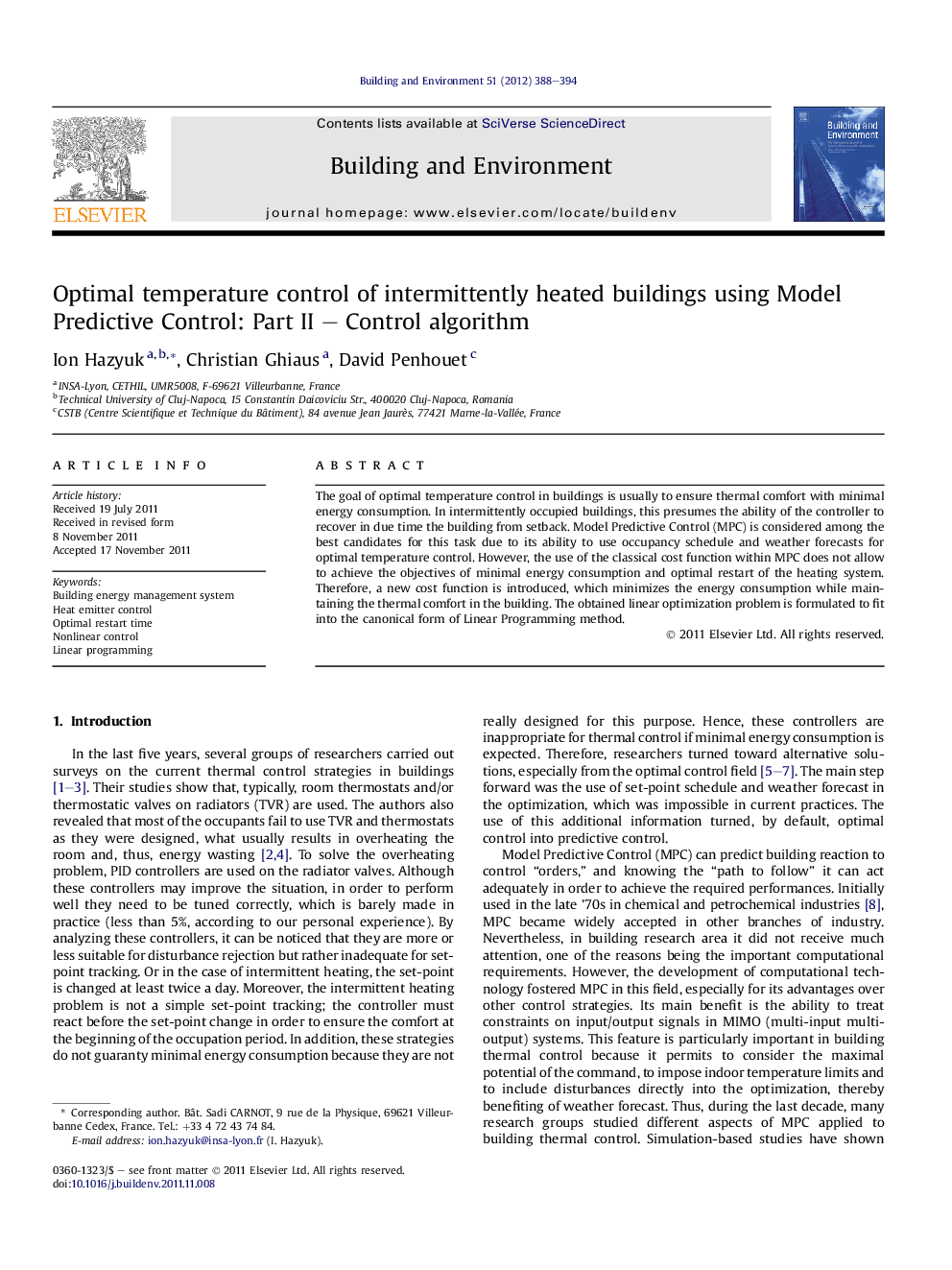| Article ID | Journal | Published Year | Pages | File Type |
|---|---|---|---|---|
| 248493 | Building and Environment | 2012 | 7 Pages |
The goal of optimal temperature control in buildings is usually to ensure thermal comfort with minimal energy consumption. In intermittently occupied buildings, this presumes the ability of the controller to recover in due time the building from setback. Model Predictive Control (MPC) is considered among the best candidates for this task due to its ability to use occupancy schedule and weather forecasts for optimal temperature control. However, the use of the classical cost function within MPC does not allow to achieve the objectives of minimal energy consumption and optimal restart of the heating system. Therefore, a new cost function is introduced, which minimizes the energy consumption while maintaining the thermal comfort in the building. The obtained linear optimization problem is formulated to fit into the canonical form of Linear Programming method.
► Model Predictive Control (MPC) for temperature control in buildings is proposed. ► A cost function that assures thermal comfort consuming minimal energy is suggested. ► The problem is adequately formulated to be solved by Linear Programming. ► A solution to treat the system nonlinearity by using its inverse is suggested.
